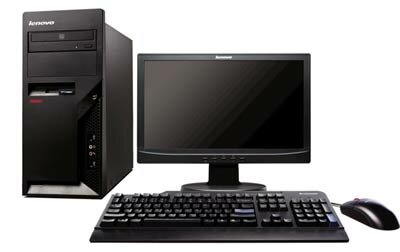Five Computer Troubleshooting Tips You Can Do Yourself
The following article tells you about Five Computer Troubleshooting Tips You Can Do Yourself. You’ve just finished that report that is due at nine in the morning. It’s taken you three weeks to put it all together and you are pretty darn proud of the finished product. All of a sudden your computer starts acting very strangely. You may experience the computer blue screen or watch as the entire system locks up. What in the world are you going to do now?

For many people, this is an all too common scenario. It’s infuriating, frustrating, and can be very costly for some people. How can you, with limited computer knowledge, go about computer troubleshooting? Well, it’s easier than you might think.
Computer Troubleshooting 101
So what do you do? Computer troubleshooting is definitely not your forte. However, there are several things that you can do at home before you take your computer in to be repaired. Here are some tips for computer troubleshooting, even if you’re a beginner.
1. Know when you need to turn the computer off and on to solve a logical or non hardware failure.
2. Learn when to try the help utility and when you should look to the web for answers.
3. Know when your computer is running slow and what actions you can take to improve performance.
A computer is fragile, but complex. Internally, the parts of a computer must work almost perfectly in order to avoid failures. With “logical” failures, like when you find your computer running slower or freezing up, you can easily solve about 95% of the problems by turning the computer power supply on and off.
A number of problems can also be solved with a good registry cleaner. This area of the computer is pretty much in control of your operating system. If there is a problem that can be attributed to the registry, it’s fairly simple to fix with the right registry cleaner. Don’t ever try to fix registry errors unless you know exactly what you are doing. You can completely crash your computer and that will require a little more work than basic computer troubleshooting.
If your computer has a “physical” failure, then the component that failed must be either fixed or replaced. A hard drive failure is one of the most common components to fail. The motherboard is the second most common component to got bad. This is the circuit board actually holds the computer chip..
Know Your Limitations
This is very important. You should try the above tips, but if you are unfamiliar with computer troubleshooting and repair, it’s best to leave it to the professionals. Hopefully, they will be able to repair the damage and save some of your information. If not, it’s time to buy another computer and start over once again.
In Closing
Even though your computer may be the most frustrating thing in your home at times, you obviously do not want to be without it. By learning basic computer troubleshooting tips and techniques, you may be able to save yourself a lot of headaches. Realize your limitations and know when to seek the help of a professional. Computers are terrific things, remember, until they break!
